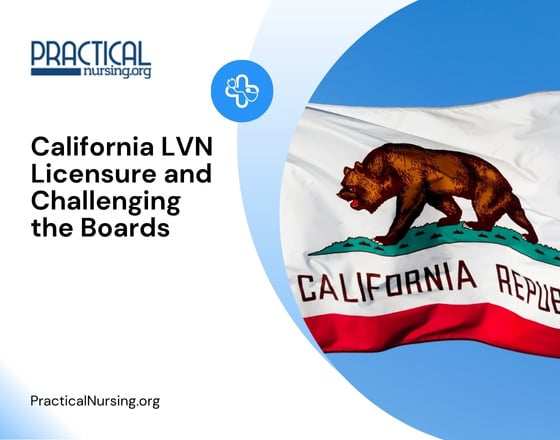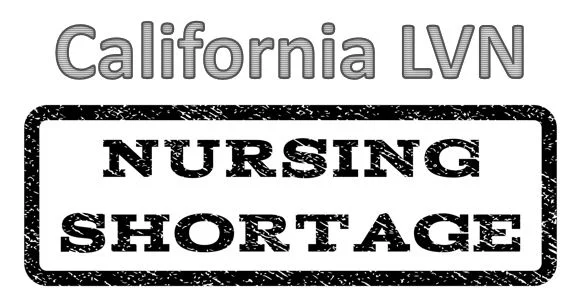California LVN Licensure and Challenging the Boards


 The United States is currently in the midst of a nursing shortage. Demand for healthcare services, current health care legislation and an increase in the aging baby-boomer population has caused nurses to be stretched thin. Heath care organizations have frequently tried to “make do with less” due to the increased demand for nurses.
The United States is currently in the midst of a nursing shortage. Demand for healthcare services, current health care legislation and an increase in the aging baby-boomer population has caused nurses to be stretched thin. Heath care organizations have frequently tried to “make do with less” due to the increased demand for nurses.
Along with many other strategies to combat the nursing shortage comes LPN/LVN licensing options. In California, a prospective LVN can challenge the board and sit for the LVN licensing exam- without having to go through an approved, formal LVN program.
While this may be good news for some, there are strict guidelines for this means of licensure. First, applicants must complete the equivalent of 51 months of paid bedside nursing experience. If the applicant has completed part of formal nursing education, it may be used as a substitute for bedside work experience.
The work experience must be paid, in the inpatient setting, and include experience as follows:
- 48 months in medical-surgical nursing
- Six weeks of maternity or genitourinary nursing
- Six weeks of pediatric nursing
The work experience must have taken place within ten years, with half of the experience within the previous five years. Verification of employment is also required for licensure and must come from an RN director or supervisor. The verification must include that the applicant has demonstrated basic bedside nursing skills (i.e., ambulation, catheter care, specimen collection, range of motion, etc.) as well as infection control procedures.
Additionally, a 54 theory-hour pharmacology course is also required. Applicants are responsible for ensuring the course includes the following principles:
- Knowledge of commonly used drugs and their action;
- Computation of dosages
- Preparation of medications
- Principles of administration
While licensure by exam helps get nurses out into the workforce, there are certain considerations that one should keep in mind. For example, it’s important to recognize that while this method of licensure is valid in California, there are no other states that accept LVNs who become licensed by equivalency. Also, becoming licensed this way may limit the nurse’s ability to get hired, as completion of a formal nursing education program is preferred by many employers.
Related Articles
- Most Affordable LPN/LVN Programs for 2026: Your Path to Nursing Success on a Budget
- LPN / LVN History & Background
- LPN to RN Bridge Programs: Accelerating Career Growth for Practical Nurses
- You Will ALWAYS Be Learning!
- Nursing in Long Term Care
- Full Time Mother and LPN
- Culture of LPNs and RNs in Team Nursing
- How to Prepare for Your LPN/LVN Program Entrance Exam